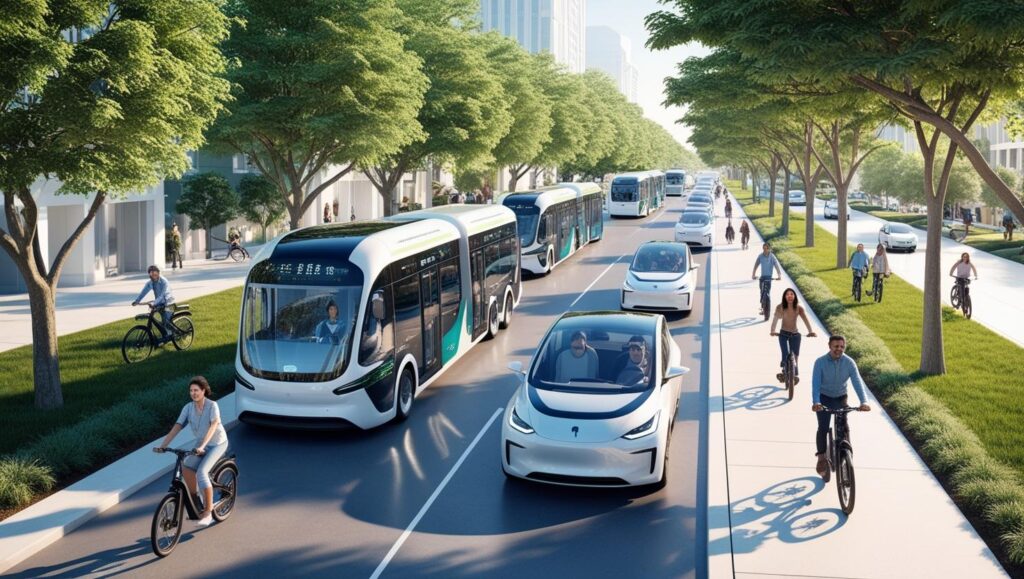In a world facing climate change and environmental degradation, eco-friendly technologies for sustainable living are more important than ever. Innovations in energy, transportation, and daily household solutions are transforming the way we interact with the planet. These technologies not only reduce carbon footprints but also promote a healthier and more sustainable future.
1. Renewable Energy Solutions for Homes
One of the most impactful ways to embrace sustainability is through renewable energy. Homeowners now have access to various technologies that harness natural energy sources, reducing reliance on fossil fuels.
- Solar Panels: Modern photovoltaic (PV) systems have become more affordable and efficient, allowing households to generate clean electricity and even sell excess power back to the grid.
- Wind Turbines: Small-scale residential wind turbines can supplement solar power, especially in windy regions.
- Geothermal Heating and Cooling: By utilizing the Earth’s natural heat, geothermal systems provide a low-carbon alternative to traditional HVAC systems.
These energy solutions significantly lower electricity costs while minimizing environmental impact.

2. Smart Home Technology for Energy Efficiency
Smart home innovations are making it easier than ever to live sustainably. Energy-efficient appliances and AI-driven home systems help reduce waste and optimize energy use.
- Smart Thermostats: Devices like learning thermostats automatically adjust heating and cooling based on usage patterns, reducing unnecessary energy consumption.
- LED Lighting: Switching to LED bulbs can cut energy use by up to 80% compared to traditional incandescent lighting.
- Water-Saving Devices: Smart irrigation systems and low-flow fixtures significantly reduce water waste without compromising functionality.
These technologies not only lower utility bills but also contribute to global efforts in energy conservation.
3. Sustainable Transportation Innovations
The shift toward green transportation is accelerating, with electric vehicles (EVs) and alternative fuel sources leading the way.
- Electric Cars & Buses: EVs, with improved battery ranges and faster charging times, are becoming mainstream, reducing reliance on gasoline.
- Hydrogen-Powered Vehicles: These offer a zero-emission alternative, producing only water vapor as a byproduct.
- E-Bikes & Scooters: Urban dwellers increasingly adopt electric bikes and scooters for short commutes, reducing traffic congestion and emissions.
Public transport is also evolving with solar-powered buses and electric trains, making commuting greener and more efficient.

4. Eco-Friendly Materials in Construction & Design
The construction industry is a major contributor to carbon emissions, but sustainable building materials are changing the game.
- Bamboo & Recycled Wood: These materials offer durability while significantly reducing deforestation.
- Hempcrete & Mycelium Bricks: Natural, biodegradable alternatives to concrete that provide excellent insulation and strength.
- Cool Roofing & Green Walls: Roofs that reflect heat or incorporate vegetation help regulate indoor temperatures, reducing energy demand.
Green architecture is shaping the future of urban development by making buildings more energy-efficient and less harmful to the environment.
5. Waste Reduction Through Circular Economy Practices
Reducing waste is essential for sustainability. The circular economy model focuses on recycling, reusing, and repurposing materials instead of discarding them.
- Composting Solutions: Smart compost bins transform food waste into nutrient-rich soil for gardening.
- Zero-Waste Packaging: Brands are shifting to biodegradable and refillable packaging to cut down on plastic waste.
- Upcycling & Second-Hand Markets: Online platforms and local markets encourage repurposing old goods instead of discarding them.
Governments and businesses are increasingly adopting zero-waste strategies, ensuring that resources remain in use for as long as possible.

Final Thoughts
The future of eco-friendly technologies for sustainable living looks promising, with continuous advancements making it easier to adopt greener lifestyles. By integrating renewable energy, smart home solutions, sustainable transportation, eco-friendly construction, and waste reduction practices, we can collectively create a healthier planet.
As these technologies become more accessible, individuals and businesses alike have a unique opportunity to embrace sustainability, ensuring a cleaner, greener world for future generations.